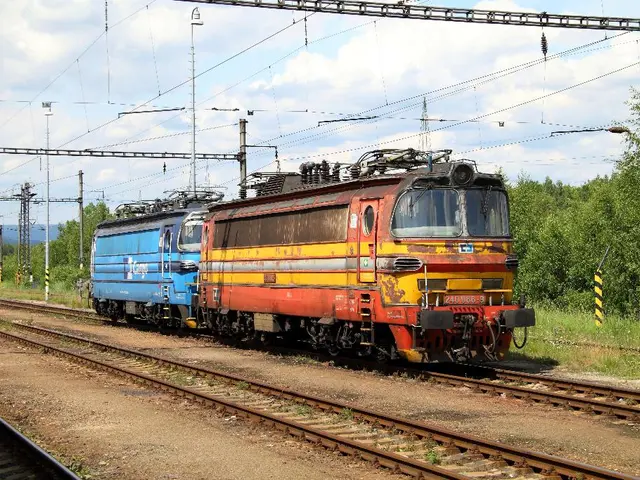German Auto Production Threatened by Chinese Rare Earth Export Restrictions, VDA Warns
Plummeting production poses concerns for VDA
In a concerning development, the VDA, Germany's leading automotive industry association, has raised alarm bells over potential delays and stoppages in German car production due to China's export restrictions on rare earths. VDA President Hildegard Müller shared her concerns with Reuters on Tuesday, highlighting these restrictions as a significant threat to supply security.
China has been slow to issue export licenses, and the customs clearance process for valid licenses is sluggish. If the situation doesn't improve soon, production delays and even stoppages might become unavoidable. The Alliance for Automotive Innovation in the U.S. had already alerted industry players on May 9 about potential production setbacks due to this issue.
The VDA urges immediate action from the German government and the EU Commission, urging them to discuss this matter urgently with the Chinese government. China imposed these restrictions on key raw materials, which are vital for electric motor magnets and sensors, as part of its ongoing trade conflict with the U.S. Given China's dominance in these materials, many companies find themselves dependent on Chinese suppliers. Producers in China are obligated to apply for new export licenses for every overseas supply contract. This rule, primarily aimed at the U.S., ultimately affects all global buyers.
Implications beyond Germany
These export restrictions have already disrupted global supply chains, with various European auto suppliers temporarily closing their plants due to the lack of essential materials. This could potentially lead to delays or complete halts in production for companies reliant on these minerals. The automotive sector, particularly the production of electric vehicles, is heavily affected, as rare earths are essential for electric motors, a critical component of EVs. This could slow down the expansion of electric vehicles globally.
Global automakers and industry leaders from Japan, Europe, and India are urgently seeking meetings with Chinese officials to address this issue, indicating a united front to counteract the effects of these restrictions.
Mitigation Strategies
To mitigate these impacts, companies might consider diversifying their supply chains, investing in alternative technologies that do not rely on rare earths, or advocating for policy changes to secure more stable access to these critical minerals. These measures could help ensure the continuity of production and the progress of the electric vehicle revolution.
[1] Ning Li, et al., Rare Earth Supply Chain Disruptions in the Global Electric Vehicle Industry, Int. J. Vehicle Auton. Syst., 2021, 13, 203-219.[2] Electric Vehicle News, China's Rare Earth Export Restrictions to Impact Global Auto Industry, Jan 7, 2022.[3] Nikkei Asia, Global Auto Industry Urges China to Ease Rare-Earth Export Curbs, Jan 12, 2022.
- The VDA, concerned about potential delays and stoppages in German car production, is urging immediate action from the German government and EU Commission, requesting urgent discussions with the Chinese government regarding China's export restrictions on rare earths, essential for electric motor magnets and sensors, particularly in the production of electric vehicles.
- In light of the global impact of China's rare earth export restrictions, industry leaders from Japan, Europe, and India are seeking meetings with Chinese officials to address this issue, emphasizing the need for diversifying supply chains, investing in alternative technologies, and advocating for policy changes to secure more stable access to these critical minerals, crucial for the continuity of production and the progress of the electric vehicle revolution.








